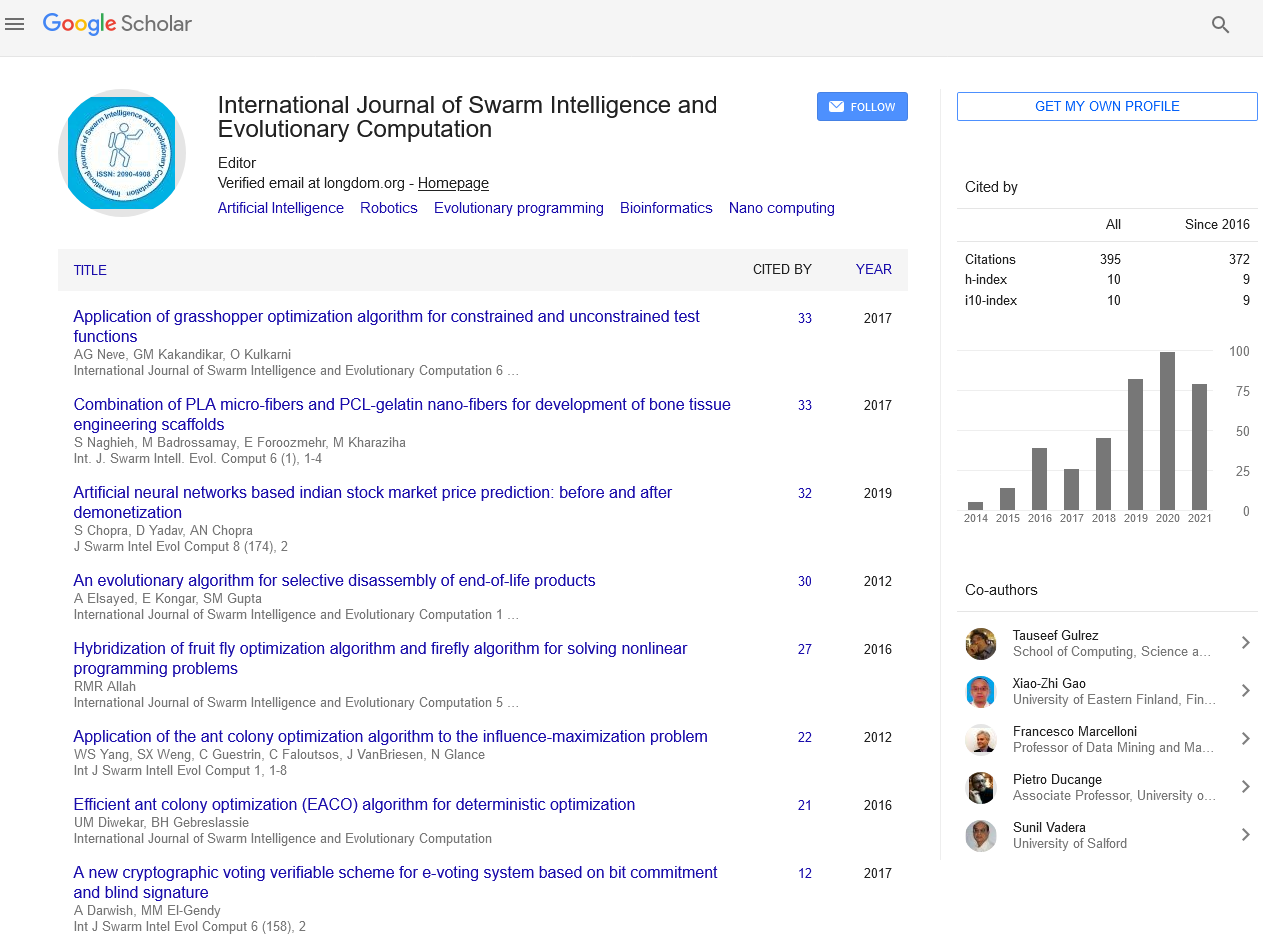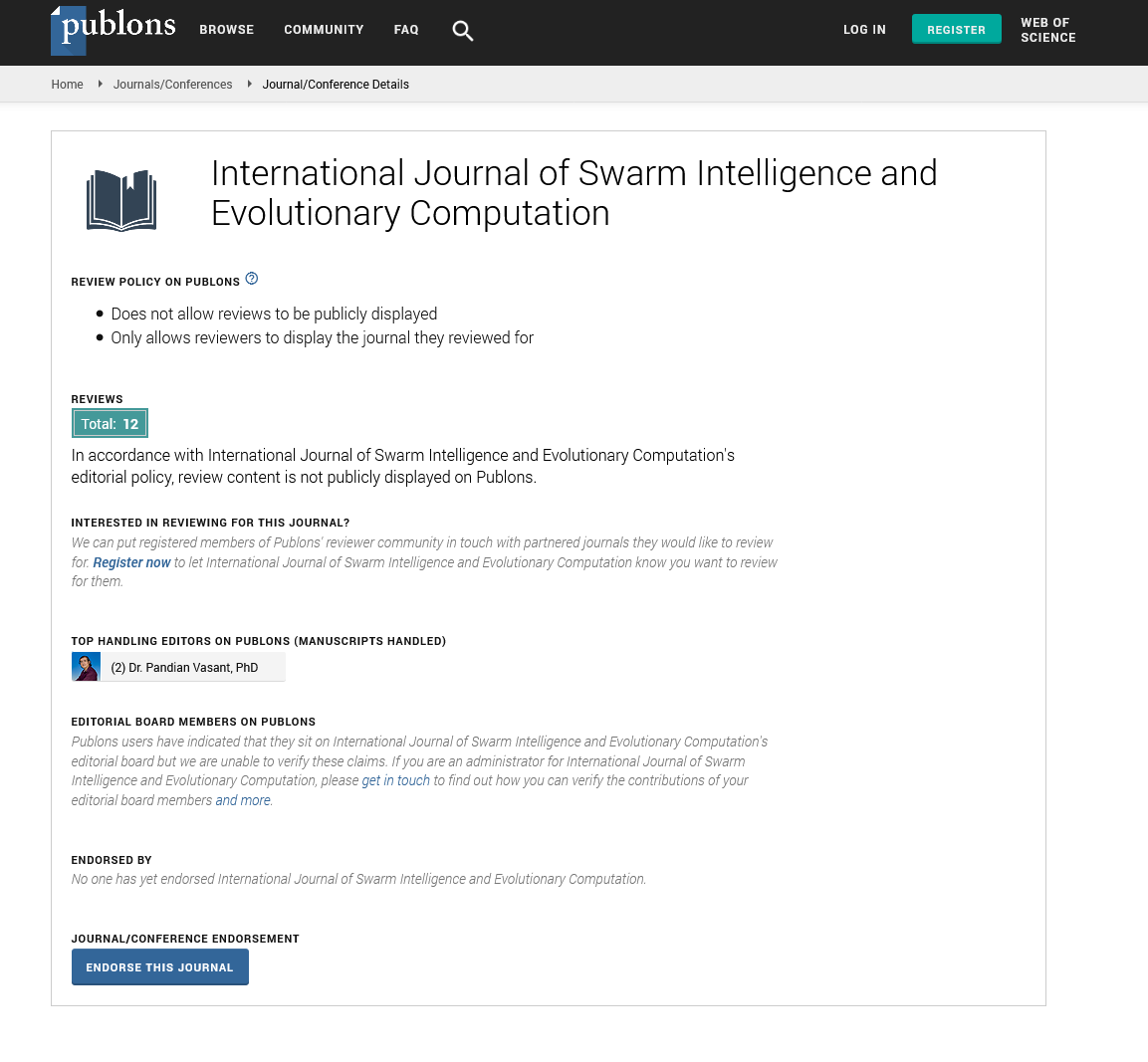Indexed In
- Genamics JournalSeek
- RefSeek
- Hamdard University
- EBSCO A-Z
- OCLC- WorldCat
- Publons
- Euro Pub
- Google Scholar
Useful Links
Share This Page
Journal Flyer

Open Access Journals
- Agri and Aquaculture
- Biochemistry
- Bioinformatics & Systems Biology
- Business & Management
- Chemistry
- Clinical Sciences
- Engineering
- Food & Nutrition
- General Science
- Genetics & Molecular Biology
- Immunology & Microbiology
- Medical Sciences
- Neuroscience & Psychology
- Nursing & Health Care
- Pharmaceutical Sciences
Abstract
Scheduling Functions for Position Updating in Population Based Optimization Algorithms
Jeremy Mange* and Sara Pace
In many population-based optimization algorithms (Evolutionary Algorithms, Particle Swarm Optimization, etc.), each iteration of the algorithm involves a procedure-specific set of operations for each population member, followed by a resulting update of the position of that member within the problem search space. However, for algorithms in which these operations involve only a single population member and not the population as a whole, there is no inherent need to update every member at every iteration. In this paper, we propose a generalization of this updating procedure wherein a ?scheduling? function is defined to dictate the ordering of updates through the application of algorithm, thus considering the typical procedure of updating every population member at every iteration as a particular ?round-robin" schedule. Using the standard Particle Swarm Optimization algorithm (SPSO-2011) as a basis for demonstrating the concept, we compare a number of different scheduling functions and show that several of these functions outperform the typical round-robin schedule for a set of benchmark optimization problems.


